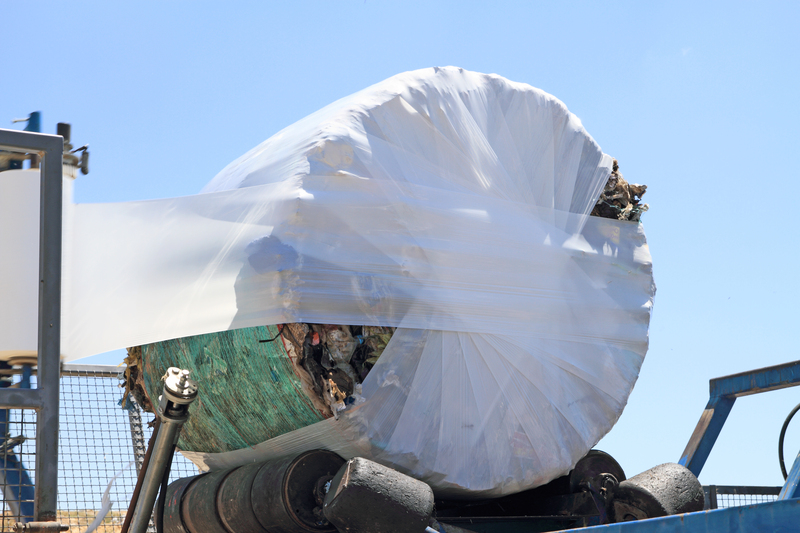Respectful Waste Practices
Posted on 17/05/2025
Waste management has become a pivotal concern in our modern world, one that demands conscientious and respectful approaches. Respectful waste practices involve an array of strategies that individuals, communities, and companies can adopt to minimize their environmental footprint. This article delves into the various aspects of respectful waste management and how they collectively contribute to a sustainable future.
The Importance of Respectful Waste Practices
Respectful waste practices are essential for preserving the environment, promoting human health, and ensuring the sustainability of resources for future generations. Our planet's resources are finite, and the sheer volume of waste produced can have cascading negative impacts on ecosystems, wildlife, and human communities. Therefore, adopting respectful waste practices serves as a remedy to these challenges.

Key Principles of Respectful Waste Practices
1. Reduce: The first step is to minimize waste production. This can be achieved by being mindful of our consumption habits and choosing products with minimal packaging.
2. Reuse: Before discarding items, consider if they can be repurposed or given new life. Reusing products reduces the demand for new materials.
3. Recycle: Proper recycling of materials like paper, plastic, and metal helps to reintroduce them into the production cycle, conserving raw materials.
4. Compost: Organic waste such as food scraps and yard waste can be composted to produce valuable soil amendments. Composting diverts waste from landfills and enriches soil health.
5. Educate: Raising awareness about the importance of respectful waste practices can drive community engagement and cooperation in waste management efforts.
Implementing Respectful Waste Practices
To integrate these principles into daily life, here are some practical tips:
Shop Smart: Opt for products with minimal packaging, buy in bulk to reduce packaging waste, and choose durable items over disposable ones.
Repurpose Creatively: Use old jars as storage containers, convert old clothes into rags or DIY projects, and find new uses for everyday items.
Separate Waste: Keep different bins for recyclables, compostables, and general waste to ensure efficient disposal and recycling.
Support Local Recycling Programs: Educate yourself about local recycling rules and participate in community recycling programs.
Compost at Home: Start a backyard compost or use a worm bin for food scraps. Many communities also offer municipal composting services.
Avoid Single-Use Plastics: Carry reusable bags, bottles, and utensils to minimize reliance on single-use plastics.
Pros and Cons of Respectful Waste Practices
Pros:
Environmental Benefits: Reduces pollution, conserves resources, and lowers greenhouse gas emissions.
Economic Savings: Lower waste management costs and potential economic gains from recycled materials.
Community Health: Reduces exposure to harmful waste-related toxins and pollutants.
Cons:
Initial Effort and Cost: Setting up recycling systems and composting can involve initial effort and expenses.
Inconvenience: Adapting to new habits and systems may be inconvenient for some.
Incomplete Participation: Community or systemic challenges can hinder full participation and limit effectiveness.
Tips for Cultivating Respectful Waste Practices
1. Start Small: Begin with manageable changes, like reducing plastic bag use or starting a small compost bin.
2. Educate Yourself and Others: Stay informed about waste management practices and share knowledge with friends and family.
3. Involve the Community: Collaborate with community groups and participate in local waste reduction initiatives.
4. Track Progress: Monitor your waste output and recycling efforts to see the impact of your actions.

Takeaways
Respectful waste practices are crucial for environmental conservation and community health.
Simple steps like reducing, reusing, and recycling can have significant positive impacts.
Raising awareness and community involvement are essential for successful waste management.
Conclusion
Respectful waste practices embody a commitment to sustainable living and environmental stewardship. By reducing waste, reusing materials, recycling properly, and composting organic matter, individuals and communities can significantly reduce their impact on the environment. Although there are challenges, the benefits far outweigh the cons, leading to a healthier planet and healthier communities. Cultivating respectful waste habits today ensures a cleaner, greener future for generations to come.
Overall, it's crucial to keep in mind the balance between convenience and responsibility. Start implementing these strategies in your everyday life and inspire others to do the same. Together, we can make a remarkable difference.
Latest Posts
Enhance Business Efficiency with Waste Collection

